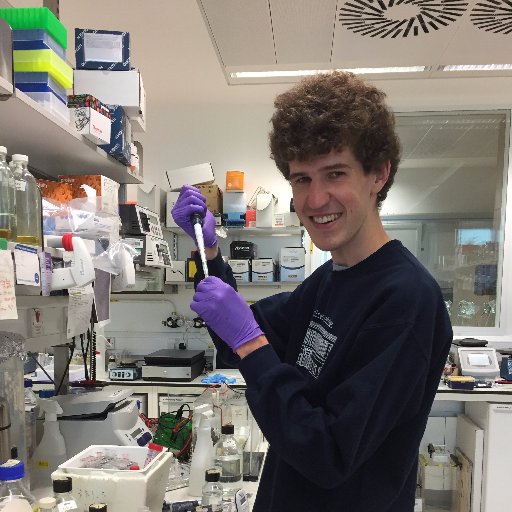
Rumya
@rumya_r
Followers
145
Following
34
Media
6
Statuses
11
Postdoctoral Fellow @broadinstitute Harvard-MIT PhD graduate from @mit_hst
Joined July 2019
1/ Thrilled to share an advancement in gene therapy from my PhD in @NatureComms! We've developed a new approach to reduce immune responses while maintaining efficiency—paving the way for safer, more effective therapies. Big thanks to @zhangf & @mircoscopy! https://t.co/eXZkpgiMXq
2
33
127
Congratulations to @rumya_r @mircoscopy @DStrebinger @blake_lash @cyrusbiotech and colleagues on an exciting study combining AI and protein engineering to minimize the immunogenicity of Cas9 and Cas12a nucleases. These approaches have the potential to improve the safety and
1/ Thrilled to share an advancement in gene therapy from my PhD in @NatureComms! We've developed a new approach to reduce immune responses while maintaining efficiency—paving the way for safer, more effective therapies. Big thanks to @zhangf & @mircoscopy! https://t.co/eXZkpgiMXq
2
29
206
Nucleases, core components of CRISPR-based genome-editing therapies, can stimulate unwanted immune responses. Scientists have now engineered two CRISPR nucleases to mask them from the immune system, paving the way for safer, more efficient gene therapies. https://t.co/c3zbEqFC5J
1
10
29
8/8 This interdisciplinary work wouldn't have been possible without @zhangf, @mircoscopy, Indigo King, Samuel Vo, @DStrebinger, @BlakeLash1, Michael Killian, @yfsong, @lucas_nivon, Rhiannon Macrae, @cyrusbiotech and the entire team at @broadinstitute!
nature.com
Nature Communications - CRISPR-mediated genome editing tools are entering the clinic, but concerns remain about the potential immunogenicity of these bacterial-derived proteins. Here, Raghavan et...
0
1
5
7/8 This study highlights how structural biology and immunology converge to create tailored solutions in medicine. By designing proteins that “fly under the radar” of the immune system, we’re improving safety and accessibility of cutting-edge treatments and transforming medicine.
1
0
5
6/8 This work represents a significant step closer to making CRISPR therapies safe and effective for more patients! Importantly, it provides a framework for engineering other minimally immunogenic proteins for safer, more versatile therapies across disease applications.
1
0
5
5/8 In vivo, these Redi variants performed exceptionally. SaCas9.Redi.1 editing of PCSK9 not only matched wild-type efficiency but also reduced immune responses significantly. PCSK9 is one of many clinical targets and this approach opens doors for repeated dosing in gene therapy!
1
0
5
4/8 The result? The engineered "Redi" (REDuced Immunogenicity) variants of SaCas9 and AsCas12a dramatically reduced recognition by T cells and cytokine production, while maintaining wild-type levels of activity and specificity. A key milestone for safer therapeutic use.
1
0
6
3/8 Using MHC-associated peptide proteomics (MAPPs) with @AbzenaGroup we identified the specific immunogenic "hotspots" on SaCas9 and AsCas12a. Then, we used computational modeling with @cyrusbiotech to design mutations that reduce MHC binding and evade immune detection.
1
0
6
2/8 The problem? Most CRISPR systems, like SaCas9 and AsCas12a, come from bacteria, and many people’s immune systems recognize these proteins. This limits their use, especially in repeated treatments. We set out to address this with precision engineering.
1
0
6
Really exciting work on structural studies and engineering of a non-LTR retrotransposon with @maxewilkinson Rhi Macrae and @zhangf! Check out the tweetorial below
(Just kidding, one more movie) Thank you my lovely co-authors @FrangiehChris @zhangf and Rhi Macrae Also @bradyajohnston's #MolecularNodes Blender plugin is great. Everyone should use it. #b3d
0
3
16




